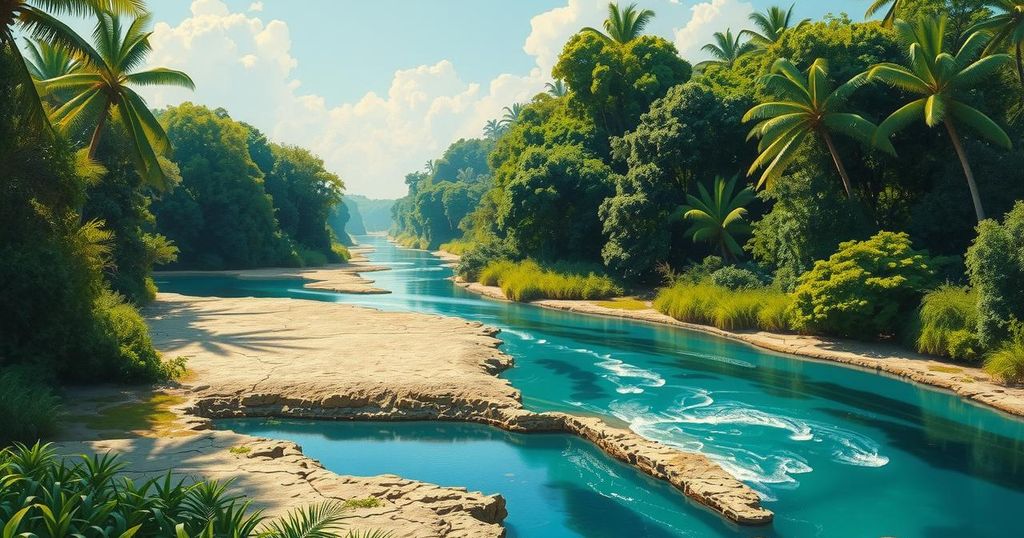Brazil Faces Decline in Natural Surface Water Amid Climate Change Challenges

Brazil is losing natural surface water due to climate change and land conversion, having lost 400,000 hectares from last year to 2023. Since 1985, Brazil has lost about 2.4 million hectares of aquatic surface, with the Amazon significantly impacted. An urgent need for adaptive water management strategies has been highlighted ahead of the COP30 conference.
Brazil, which holds 12 percent of the world’s freshwater reserves, is experiencing a significant decline in natural surface water. This deterioration stems primarily from climate change and the conversion of land from forest to agricultural use, as highlighted by a recent report. Between last year and 2023, the nation lost approximately 400,000 hectares of aquatic surface, a loss comparable to the area of Rhode Island.
The report from the MapBiomas monitoring platform indicates that since 1985, Brazil has experienced a reduction of about 2.4 million hectares of river and lake surface due to factors such as drought, urbanization, and excessive aquifer pumping, with only a slight increase noted in 2022. “The dynamics of land occupation and use, along with extreme climate events caused by global warming, are making Brazil drier,” states Juliano Schirmbeck, coordinator of the MapBiomas Agua report.
On the eve of World Water Day, Schirmbeck emphasized the urgent need for adaptive water management strategies and policies aimed at reversing this alarming trend. The upcoming COP30 UN climate conference, scheduled to take place in November in Belem, will provide a platform for addressing these critical issues. The Amazon basin, housing nearly two-thirds of Brazil’s surface water, plays a vital role in climate regulation by absorbing carbon dioxide.
The report also revealed that surface water in the Amazon shrank by 4.5 million hectares in 2023, equivalent to the size of Denmark. Additionally, the Pantanal wetlands, heavily affected by drought and wildfires, saw a remarkable decrease in water surface, now 61 percent below the average recorded since 1985. While artificial water bodies such as reservoirs and dams have increased by 54 percent since 1985, this growth has not compensated for the loss of natural freshwater sources, as reported.
In summary, Brazil is facing a troubling decline in natural surface water due to climate change and land conversion practices. The MapBiomas report underscores the urgency for innovative water management solutions and effective public policies. With Brazil set to host the COP30 climate conference, there lies an opportunity for global dialogue and action to address these critical environmental challenges.
Original Source: www.ndtv.com





